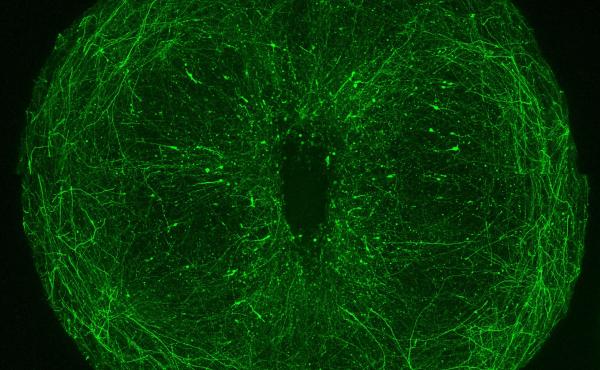Brain Disorders Models Research Group
The Brain Disorders Models Research Group uses advanced cellular models, such as organoids and induced pluripotent stem cells (iPSCs), to understand the molecular mechanisms which control the progression of neurodegeneration. The iPSCs, obtained from donors with certain genetic predispositions, allow an analysis of the susceptibilities to developing neuronal diseases. Organoids and other advanced cell models derived from iPSCs contain neurons and other cell types which exist in the human brain, so that they allow an effective study of the dynamics of pathological molecular processes.
Research lines
Brain organoids as a biomarker of Alzheimer's disease
Cohort organoids may be used to identify environmental susceptibilities and comorbidities in the development and progression of Alzheimer's disease. The appearance of molecular biomarkers, such as amyloid plaques or phosphorylation of the TAU protein, increased cell death and/or neuroinflammation in organoids obtained from volunteers in the cohorts, will allow us to establish a reliable association between the individual’s genetic makeup and their environment.
Analysis of neurodegeneration progression
By using complex organoids, i.e., combining organoids with genetic susceptibility and different levels of disease progression, we will be able to identify critical points of disease progression and the molecular processes which control them. This will allow the identification of therapeutic action windows and potential drugs for each disease stage.
The path towards customised medicine in Alzheimer's disease
The potential of organoids derived from iPSC cells is enormous. Customised medicine identifies the best therapeutic procedures for each patient. This can only be achieved with a comprehensive patient overview, both from a biological perspective and in terms of medical history. Organoids allow the identification of both effective and toxic responses to certain drugs, even those at an experimental stage, without endangering patients. We are working towards an integrated, customised medicine platform.











